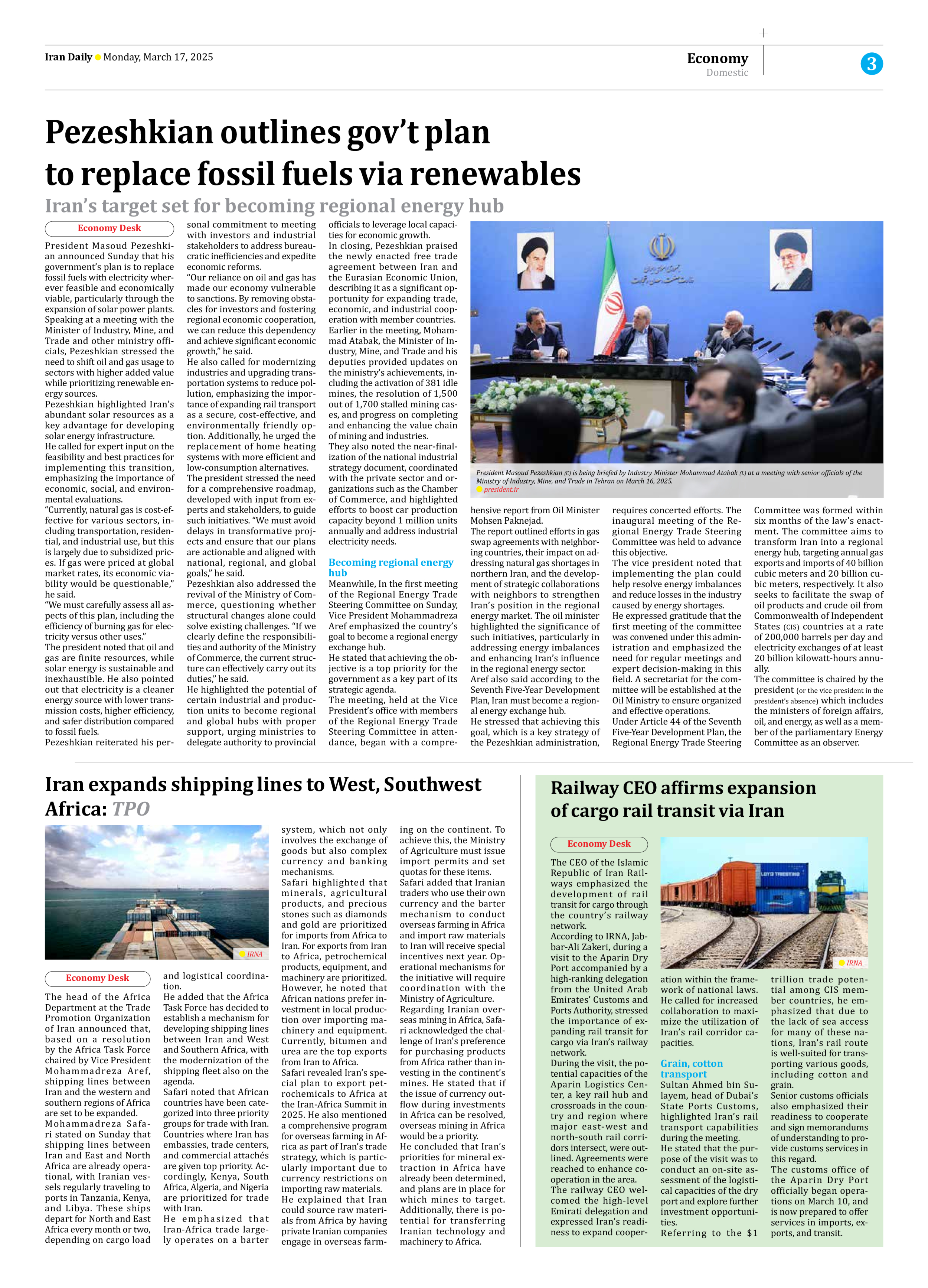
Iran expands shipping lines to West, Southwest Africa: TPO
The head of the Africa Department at the Trade Promotion Organization of Iran announced that, based on a resolution by the Africa Task Force chaired by Vice President Mohammadreza Aref, shipping lines between Iran and the western and southern regions of Africa are set to be expanded.
Mohammadreza Safari stated on Sunday that shipping lines between Iran and East and North Africa are already operational, with Iranian vessels regularly traveling to ports in Tanzania, Kenya, and Libya. These ships depart for North and East Africa every month or two, depending on cargo load and logistical coordination.
He added that the Africa Task Force has decided to establish a mechanism for developing shipping lines between Iran and West and Southern Africa, with the modernization of the shipping fleet also on the agenda.
Safari noted that African countries have been categorized into three priority groups for trade with Iran. Countries where Iran has embassies, trade centers, and commercial attachés are given top priority. Accordingly, Kenya, South Africa, Algeria, and Nigeria are prioritized for trade with Iran.
He emphasized that Iran-Africa trade largely operates on a barter system, which not only involves the exchange of goods but also complex currency and banking mechanisms.
Safari highlighted that minerals, agricultural products, and precious stones such as diamonds and gold are prioritized for imports from Africa to Iran. For exports from Iran to Africa, petrochemical products, equipment, and machinery are prioritized.
However, he noted that African nations prefer investment in local production over importing machinery and equipment. Currently, bitumen and urea are the top exports from Iran to Africa.
Safari revealed Iran’s special plan to export petrochemicals to Africa at the Iran-Africa Summit in 2025. He also mentioned a comprehensive program for overseas farming in Africa as part of Iran’s trade strategy, which is particularly important due to currency restrictions on importing raw materials.
He explained that Iran could source raw materials from Africa by having private Iranian companies engage in overseas farming on the continent. To achieve this, the Ministry of Agriculture must issue import permits and set quotas for these items.
Safari added that Iranian traders who use their own currency and the barter mechanism to conduct overseas farming in Africa and import raw materials to Iran will receive special incentives next year. Operational mechanisms for the initiative will require coordination with the Ministry of Agriculture.
Regarding Iranian overseas mining in Africa, Safari acknowledged the challenge of Iran’s preference for purchasing products from Africa rather than investing in the continent’s mines. He stated that if the issue of currency outflow during investments in Africa can be resolved, overseas mining in Africa would be a priority.
He concluded that Iran’s priorities for mineral extraction in Africa have already been determined, and plans are in place for which mines to target. Additionally, there is potential for transferring Iranian technology and machinery to Africa.







